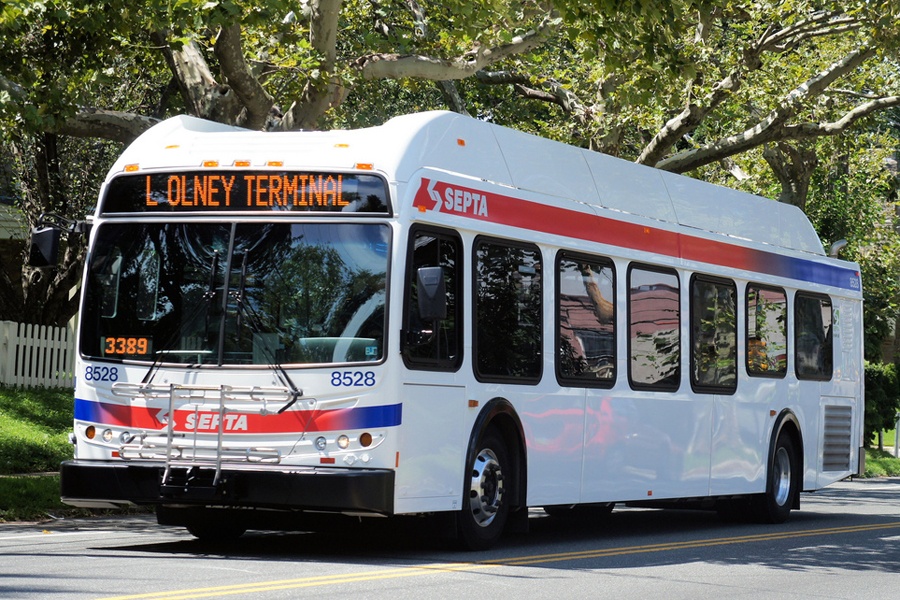SEPTA Considers Dropping Transfer Fees as Part of Bus Network Overhaul
The potential move, currently in discussion among transit officials, is said to have an impact on the bus system’s eventual redesign.
Over the past five years, SEPTA has seen its bus ridership dwindle by 17 percent from its 2012 peak, when 189 million individual trips were recorded. The 2017 figure was 156 million rides, with many buses traveling unpopular routes while operating at next to zero occupancy.
Sensing that something is wrong with the entire system itself, SEPTA has already begun the process of mapping out a complete overhaul — starting last year with the hiring of a transit consultant who previously worked to revamp the bus networks of Houston, Baltimore, and Indianapolis. In their evaluation of SEPTA’s current bus system, officials have floated the idea of eliminating the authority’s $1 transfer fee in an effort to boost ridership, PlanPhilly reports.
“The fare policy and a transfer fee impact the kind of network you can design, and so making a decision about a transfer fee would affect our eventual network redesign,” said Jennifer Barr, SEPTA’s manager for long-range planning.
Most transit agencies in other large cities don’t charge transfer fees, which discourage riders from using multiple buses to get to their destination. Instead, this shift in philosophy would allow SEPTA patrons to do just that, while allowing for the authority to chart more efficient routes and hopefully limit the number of empty buses overall.
By switching to a grid network, SEPTA in theory would be able to offer a faster and more reliable service to riders. While the decision to end transfer fees is not yet set in stone, the idea is already drawing a positive response.
good to hear that #SEPTA is finally considering ending transfer fees as part of bus system overhaul. first step towards increasing ridership. https://t.co/I5bUBKS9wq
— Brandy Bones (@brandybones) May 8, 2018
https://twitter.com/brandonwright16/status/993556116230606849
Because it penalizes people making transfers, who are disproportionately lower-income and more likely to drive instead if the price is higher. Why should you pay less if your destination happens to be on an arbitrary straight line?
— @ofsevit@better.boston (@ofsevit) April 23, 2018
When did Septa become such dicks that they made transfer times difficult?! #commuterproblems
— Maxx Suchowicki (@DoubleXStudi0s) April 20, 2018
Septa makes decoy buses, whose only purpose is to make you miss a transfer
— Bossman Qixe (Niᴎe) (@N3vvRmiNd) May 6, 2018



